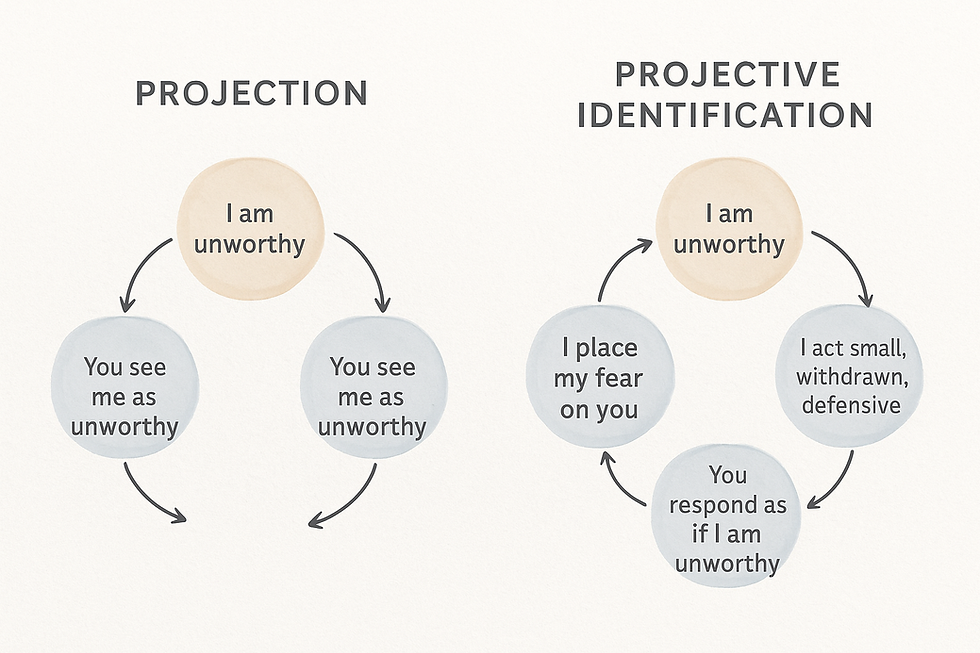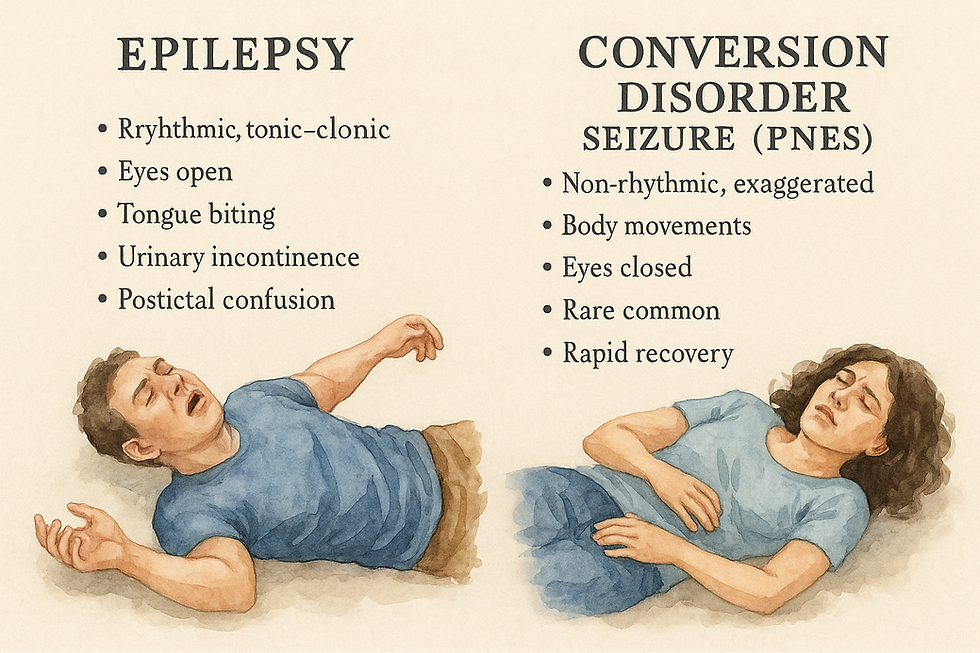How to Deal with Overthinking and obsession?
- Aug 27
- 2 min read
To deal with overthinking and obsession, the approach needs to be slightly different, though both share a need for mental clarity, emotional regulation, and skill-based strategies. Here's a side-by-side plan, grounded in psychology and neuroscience:
How to Deal with Overthinking
1. Name It to Tame It
Recognize: “I’m overthinking right now.”
Awareness activates the prefrontal cortex, helping you regain control.
2. Practice Thought Parking
Write it down, and say: “I’ll revisit this at 6 PM if it still matters.”
Helps move thoughts from short-term working memory to external space.
3. Set a Mental Timer
Give yourself 10–15 minutes to think intentionally, then shift.
This breaks the “default mode network” overactivation loop.
4. Do a Grounding Activity
Try:
Sensory grounding (5–4–3–2–1)
Movement (walk, stretch, yoga)
Breathwork (4-7-8 method)
These shift your brain from rumination to regulation.
5. Switch to “What Now?” Thinking
Instead of:
“What if I fail?” → Ask “What’s one thing I can do now?”This engages executive functioning over speculation.
How to Deal with Obsessions (esp. if OCD or trauma-related)

1. Understand the Nature of the Thought
“This is an intrusive thought. It’s not a fact, it’s a symptom.”
Obsessions are often ego-dystonic (they don’t match your values) — knowing this helps depersonalize them.
2. Do NOT Neutralize
Avoid compulsive behaviors like:
Reassurance seeking
Repeating actions
Googling
These feed the OCD loop. Discomfort is not danger.
3. Use Exposure + Response Prevention (ERP)
With professional support, expose yourself to the thought without acting on it.
This rewires the cortico-striatal circuit, reducing obsession’s power.
Example: If the thought is “What if I left the stove on?”, resist checking.
4. Script the Worst
Sometimes saying the obsession aloud repeatedly (“I might get sick from this” ×10) reduces its impact.
The brain learns it’s not dangerous.
5. Seek Therapy
CBT: Especially effective for both overthinking and obsession (OCD).
ACT (Acceptance & Commitment Therapy): Helps you detach from thoughts without needing to control them.
SSRIs (if severe): For clinical OCD, medication can help regulate serotonin and reduce loop intensity.
Shared Practices That Help Both
Meditation (esp. mindfulness): Teaches thought awareness without fusion.
Sleep: Poor rest = more intrusive thoughts.
Reduce caffeine: High caffeine = high cortisol = anxious loops.
Journaling: Keeps thoughts out of the rumination loop.
Therapist support: A guide can help you untangle what’s habit vs what’s trauma.
Reframe: Thoughts ≠ Truth
A thought is a neural impulse, not a prophecy.
Instead of fighting every thought, say:
“It’s just a mental event. I don’t need to respond.”
Join US and learn to deal with overthinking and obsession
Offline - Ahmedabad Gujarat India - What's app +919712777330
Online - Globally - www.sevee.care




Comments